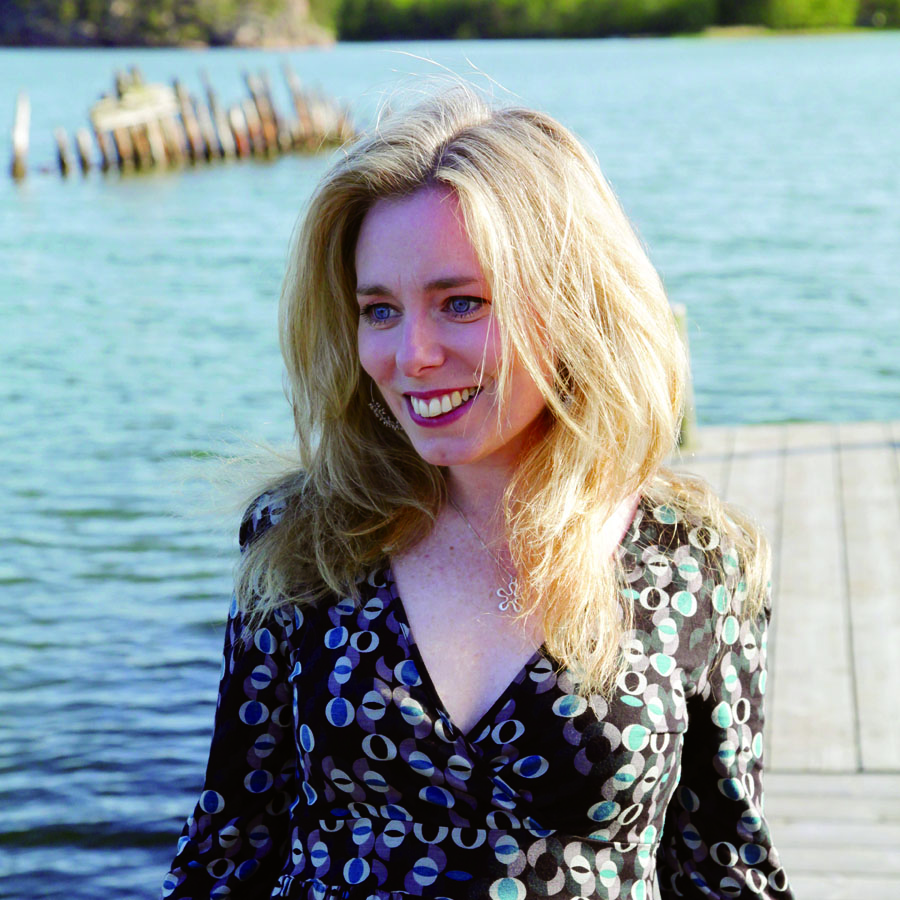Alumni Profile: Johanna Grussner '96

Johanna Grussner
Nine years ago, Finnish-born alumna Johanna Grüssner was the subject of three New York Times stories and the book Seven Days of Possibilities. After Grüssner shaped up a great gospel choir with students from P.S. 86—a middle school in a hardscrabble Bronx neighborhood—and organized a trip for these students to her homeland for a week of concerts and cultural exchange, it grabbed the attention of New York Times reporter Anemona Hartocollis. Times editors liked the story so much that Hartocollis was assigned to follow the choir to Åland (pronounced OH-lahnd), a Baltic Sea island midway between Finland and Sweden where Grüssner grew up and got her start in music.
Resonance
As for why the story resonated with so many readers, Grüssner opines, “Usually there’s a lot of sad stuff in the papers, but sometimes they pick up on a sunshine story.” Hartocollis’s first two articles chronicling the choir and its trip were indeed sunny. Times readers gravitated toward the tale of a blond Scandinavian woman teaching gospel music to inner-city kids with tough backgrounds and making them cultural ambassadors for a week among their peers in the insular Åland environment.
“I got so many e-mails after the articles ran,” Grüssner tells me from across the kitchen table in her Stockholm apartment. “I still meet people who read those stories. A few weeks ago, I met an American, and as we began talking, he started putting things together and asked if I was the teacher who took the Bronx kids to Finland nine years ago.”
The trip had a transformative effect on the 24 members of the choir. When they went to Åland, the kids were about 11 and are now in their twenties. Grüssner has been in touch with many of them through Facebook. “They all say that they will never forget the trip and that it’s an extraordinary and beautiful memory from their youth,” Grüssner says. “One guy has become very religious; another is very serious about studying drama.” Others have followed paths both happy and sad. Hartocollis has planned a follow-up story on the choir.
Grüssner originally came to Berklee looking for a new experience outside Scandinavia. “After high school, I studied music and drama at a school three hours north of Stockholm as I tried to figure out what to do next,” she says. “I chose to come to Berklee because I had a hunger to travel, learn about another culture, learn another language, and live abroad.”
In Boston, Grüssner further explored jazz, her primary musical inspiration. “I knew that I wanted to be a singer when I came to Berklee but chose to major in music education,” she says. “In Finland, it is very important to have a certificate that proves you’ve been trained in pedagogy. I’ve never regretted choosing that major.”
After graduation she moved to New York and began playing gigs and pursued her master’s degree at Manhattan School of Music. The economic realities of living in the city made the offer to launch a music program at P.S. 86 seem irresistible. In addition to her teaching, Grüssner continued to play clubs and record. (To date she has released 10 albums and her as-yet untitled third CD for the Swedish Prophone Records label will be released by year’s end.)
After the celebrated trip to Åland with the Bronx choir in May 2001, Grussner’s three-year contract at P.S. 86 was up. For various reasons—one of which was the discovery that she and her two sisters all have a very a rare form of muscular dystrophy that may ultimately confine them to wheelchairs—she decided to return to Scandinavia. But before leaving New York, Grüssner rode the wave of media interest in her saga further.
A Change of Perspective
“I had been contacted by writers, TV producers, and others wanting to do more with the story,” Grüssner recalls. “There was even a filmmaker who wanted to develop a screenplay of it and cast Gwyneth Paltrow as me. It felt so surreal.” After her summer holiday in Åland, Grüssner returned to New York. “I went back for the last weeks of August and was meeting with people and looking over contracts. Then 9/11 happened, and everything fell apart. None of this seemed important anymore. What was important to me was to begin my adult life in Stockholm with my future husband, Magnus [Danielsson], who I had met in Åland that summer.”
Shortly after 9/11, Magnus flew to New York City with a one-way ticket for Johanna and helped her pack up and leave. They were married a short time later and bought a cottage on Åland. They also took an apartment in Stockholm. These days Grüssner teaches at the Stockholm music-and-arts high school Södra Latin High School and directs choirs. She plays occasional jazz gigs in Sweden and Finland, but also performs often in Åland, where she is a bit of a celebrity.
Grüssner and her sisters monitor medical research and are hopeful that in the coming years, animal testing of successful gene therapies will hold promise for them. Grüssner is not deterred by the stiffness in her muscles that makes it increasingly difficult to get around. The inspiring enthusiasm and optimism that she brought to P.S. 86 is still evident. Currently, she has focused her formidable talents for event planning on a future telethon in Åland. The show will involve famous performers in an effort to raise funds for research on muscular dystrophy.
Grüssner and her husband now have two young children, and she divides her boundless energy between her family and her professional pursuits. “To me, happiness comes from family life, work, and having enough time to be by myself or with friends. When those three parts of life are balanced, I feel most in tune.”




